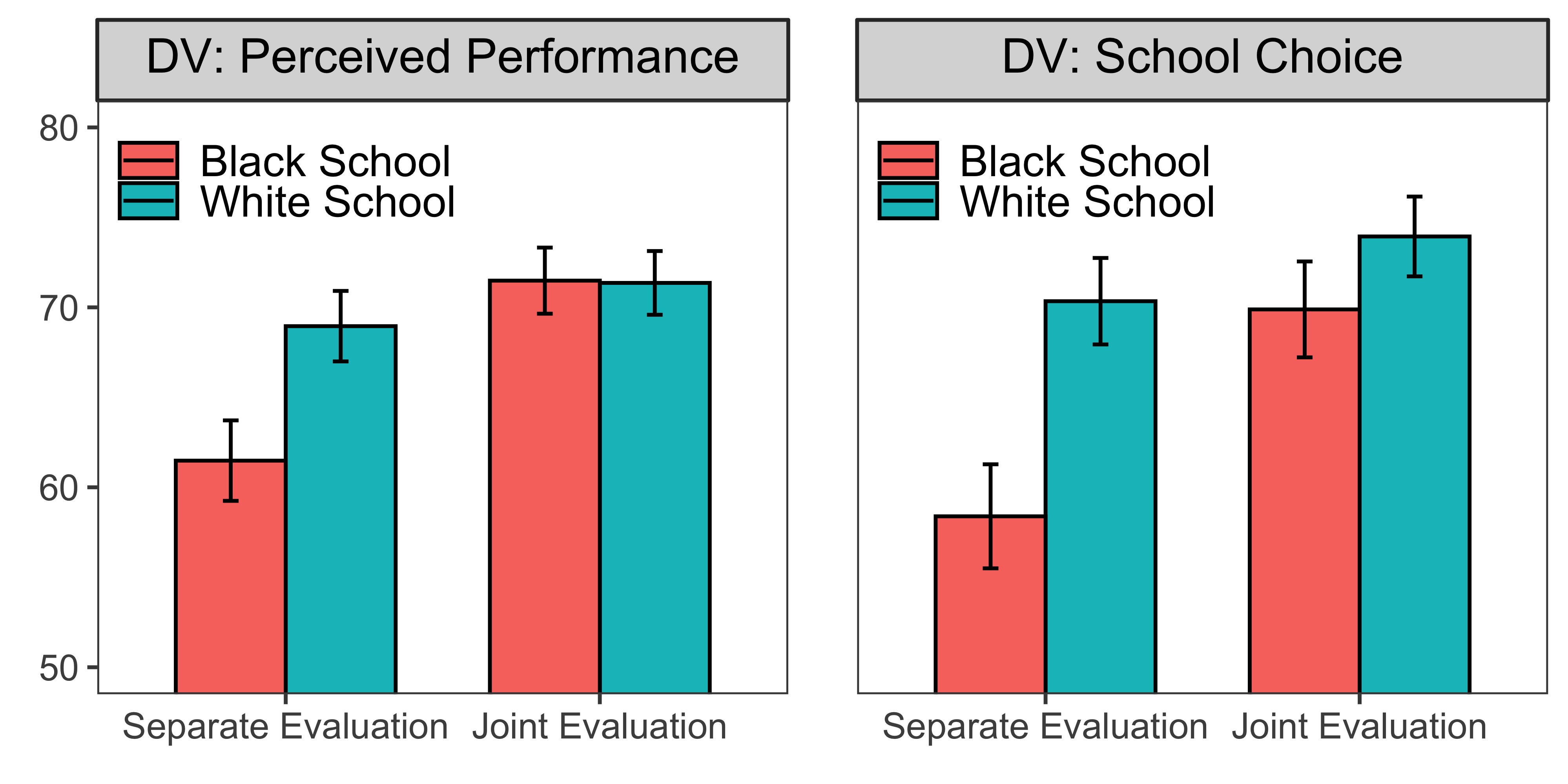Publication Page Online Appendix Data & Code
Abstract
Experimental evidence suggests that citizens’ judgments of service quality often rely on prior beliefs about providers’ characteristics, such as racial stereotypes. Such a biased judgment process prevents the public from understanding performance information accurately and choosing high- quality service providers. To address this, we studied the relation between performance information and the evaluation mode and proposed that presenting information jointly (joint evaluation) rather than separately (separate evaluation) may help people avoid stereotyping and consider actual performance. We compared people’s perceived performance and preferences through the separate and joint evaluation modes (SE and JE) in three online experiments (N>2,000), and obtained similar results in all studies: Subjects used racial stereotype to evaluate school performance in the SE condition, but such stereotyping decreased in the JE condition. Our findings provide an effective tool to de-stereotype performance evaluations, which also has implications for other public management research areas in reducing stereotyping behaviors.
Figure 4: Study 2: Racial stereotype. Note: Bars are 95% confidence intervals.
